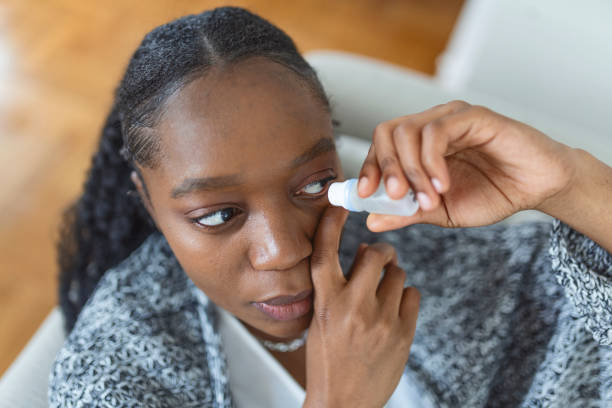Eye allergies, also known as allergic conjunctivitis, can cause uncomfortable symptoms such as itching, redness, swelling, and watery discharge. Identifying common triggers and implementing effective management strategies can help alleviate symptoms and improve quality of life.
- Allergen Identification: The first step in managing eye allergies is identifying specific allergens that trigger your symptoms. Common allergens include pollen, pet dander, mold, dust mites, and certain foods. Keeping a symptom diary can help pinpoint your triggers and guide allergy management.

- Avoidance Strategies: Once allergens are identified, take proactive steps to minimize exposure. Keep windows closed during high pollen seasons, use allergen-proof bedding covers, and regularly clean air filters and ventilation systems. Limit contact with pets or use allergy-friendly grooming practices to reduce pet dander exposure.

- Allergy Eye Drops: Over-the-counter or prescription allergy eye drops can provide relief from itching, redness, and inflammation associated with eye allergies. Antihistamine and mast cell stabilizer eye drops are commonly used to manage acute and chronic allergic conjunctivitis.

- Cool Compresses and Lubricating Eye Drops: Applying cool compresses to the eyes can soothe irritation and reduce swelling caused by eye allergies. Additionally, lubricating eye drops or artificial tears can help alleviate dryness and flush out allergens, providing immediate relief from discomfort.
Consult with our eye care professionals at Mahdi Opticals to learn more about managing eye allergies and exploring effective treatment options. Visit our online shop and schedule a free eye test by calling 0742000498 for personalized guidance on allergy-friendly eye-wear and eye care products.


